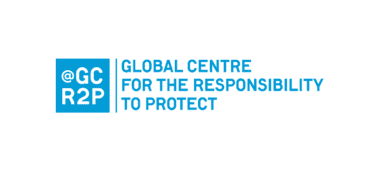
Statement by the UN Special Adviser on the Prevention of Genocide on the situation in Burundi, August 2016
(New York, 24 August 2016) The United Nations Special Adviser on the Prevention of Genocide, Adama Dieng, expressed his concern at inflammatory statements by public officials that could constitute incitement to violence including, most recently, by a senior official of the ruling CNDD-FDD political party.
In a statement on 16 August 2016 that was published on the CNDD-FDD website, Pascal Nyabenda, who was at the time President of the CNDD-FDD party and President of the National Assembly, suggested that the genocide in Rwanda was a fabrication of the international community, (“montages genocidaires contre le Gouvernement dit Hutu de Kigali”) that was used to remove the Hutu government that was in place at the time. “This irresponsible statement could be interpreted as genocide denial”, Mr. Dieng said, “and has the potential to inflame ethnic tensions, both within Burundi and outside its borders”. At the 20 August meeting of the party, a new head of the CNDD-FDD was appointed but Mr. Nyabenda continues in his role as President of the National Assembly.
The situation in Burundi continues to be marred by instability and reports of serious human rights violations, including allegations of extra-judicial killings, disappearances, torture, and arbitrary detention of members of the opposition, civil society and those suspected of opposing the Government. Human rights defenders and journalists are among the hundreds of thousands of people who have fled the country since April 2015.
In its concluding observations, issued on 11 August 2016 following a special report submitted at the request of the United Nations Committee Against Torture (CAT), the Committee’s international experts expressed deep concern over the hundreds of reports of torture received and called for investigations into all cases of killings, enforced disappearances and other violence motivated by the ethnic origin of the victim. The Committee urged the Burundian Government to refrain from making any public statements that could exacerbate ethnic tensions or incite violence or hatred and to ensure that public and law enforcement officials do not accept or tolerate such acts by other groups.
Special Adviser Dieng also raised concern that the youth wing of the CNDD-FDD party, known as the Imbonerakure, continues to be associated with human rights abuses and is reported to have threatened ethnic violence. He noted that the Minister of the Interior of Burundi had confirmed that the Imbonakure formed part of the national security strategy, as the CAT also pointed out in its concluding observations.
Special Adviser Dieng reminded the Government of Burundi of its obligation to protect its populations, regardless of their ethnicity or political affiliation, and to refrain from any action or discourse that could inflame ethnic tensions. He highlighted the importance of countering such messages with alternative speech to foster unity rather than further entrench divisions, and called on all parties to prioritize inclusive dialogue to bring about an end to the protracted crisis.
Related Content
